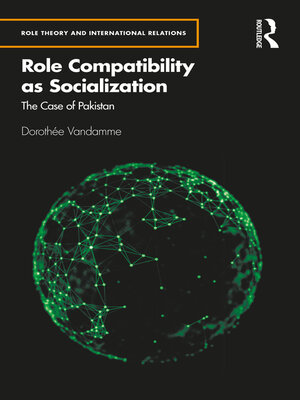Role Compatibility as Socialization
ebook ∣ The Case of Pakistan · Role Theory and International Relations
By Dorothée Vandamme

Sign up to save your library
With an OverDrive account, you can save your favorite libraries for at-a-glance information about availability. Find out more about OverDrive accounts.
Find this title in Libby, the library reading app by OverDrive.



Search for a digital library with this title
Title found at these libraries:
| Library Name | Distance |
|---|---|
| Loading... |
In Role Compatibility as Socialization, Dorothée Vandamme examines Pakistan's socialization process in terms of role compatibility in the 2008-2018 period.
Adopting an Interpretative phenomenological analysis (IPA) method of analysis, Vandamme builds on role theory to develop a theory of socialization as role compatibility to explain the dynamics of Pakistan's (dys)functioning position and its status-seeking process as a fully functioning member of the international system. Specifically, she focuses on how Pakistani civilian and military leaders define their country's positioning towards India, the United States and China. In doing so, she traces the link between domestic role contestation at the country's inception and the resulting domination of the military's conception of their country, state identity, how it projects itself externally and how it is received by others.
Departing from strictly structural or agent-oriented explanations, Vandamme expertly demonstrates Pakistan's perceived role compatibility with significant others and underlines the causality between state identity, foreign policy behavior and socialization. Role Compatibility as Socialization will be of interest to graduate students and researchers who work on and with role theory and socialization theory, and for those with a research interest on South Asia.







